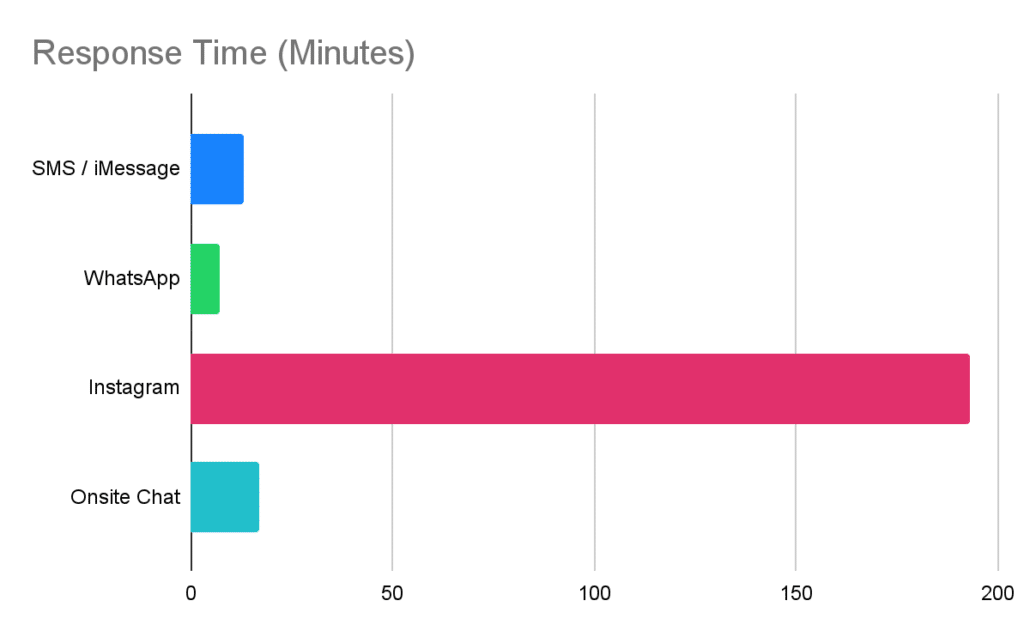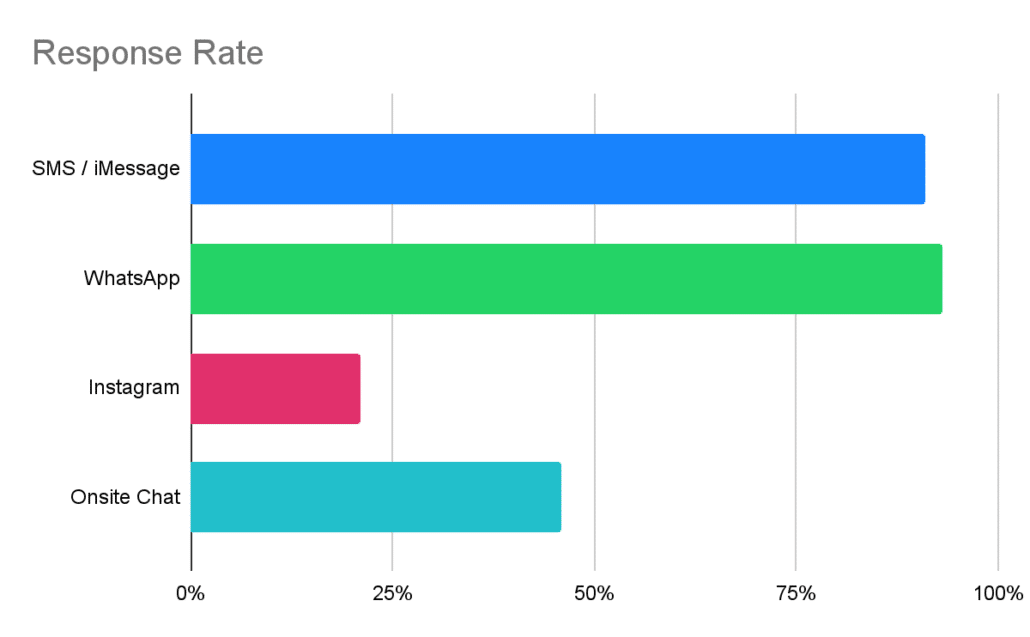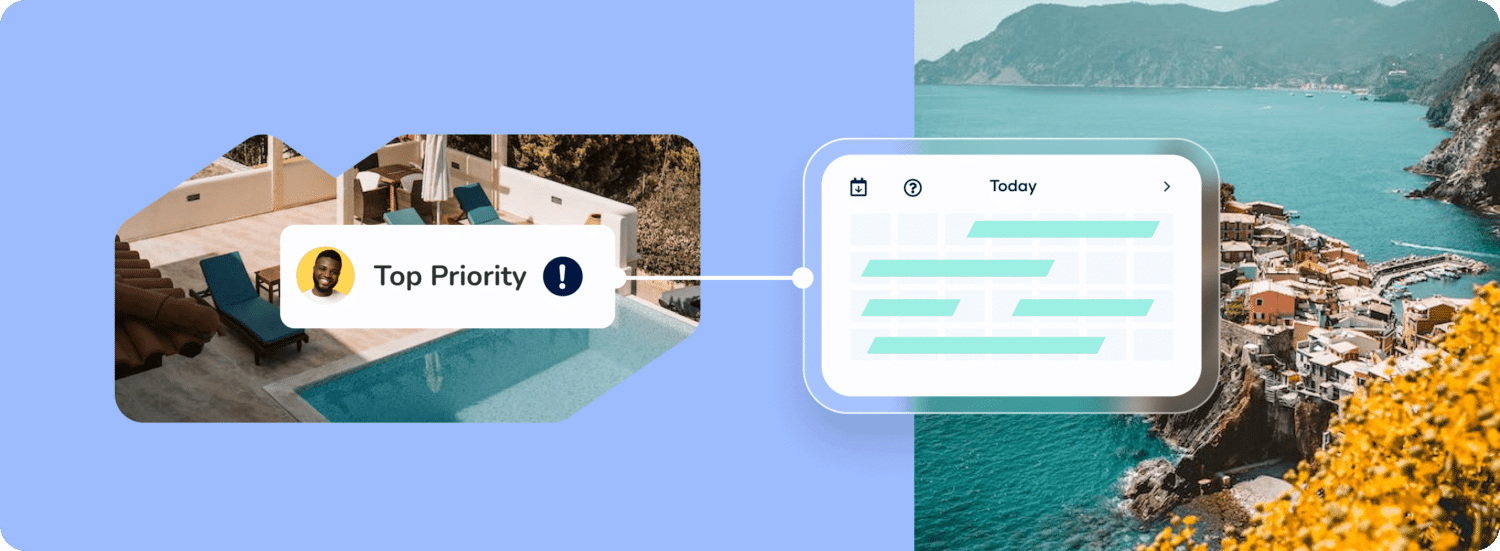This is a guest post by Yada, an AI-driven guest relationship management solution for short-term rentals
Excellent guest services and experiences, from the moment a guest starts searching for a rental to the moment they check out, are key to being a successful short-term rental (STR) property manager. The crucial factors in delivering a great guest experience are a quick response time to guest messages, and ensuring that your team and brand are easy to reach and always available.
This article explores how response times and guest support availability look across the industry right now. It will also present some key findings and actionable insights needed to increase responsiveness in the right way, in order to drive great guest experiences across the channels that matter the most.

Living up to guests’ expectations
Deploying a cohesive guest messaging strategy aimed at driving responsiveness and short MTTR (Median Time to Resolution) is a critical component of delivering great guest experiences and increasing loyalty and direct bookings. Over the last month, we’ve been analyzing our internal datasets and engaging with STR brands online to get a better understanding of what these response times look like today and how they’re impacting STR businesses.
Boosting booking rates
In the competitive world of STRs, companies need to be responsive to inquiries and booking requests, or else they may miss out on the bookings. Guests are more likely to book a rental when they receive a prompt response, especially if they’re in a hurry or have limited time to make a decision. Whether it’s answering questions about the property, addressing concerns, or making recommendations, a quick response can help guests feel more at ease and comfortable with their booking decision.
The research
Please note: With the exception of Instagram, all findings are based on conversations and interactions that happen within Yada. For Instagram statistics, we used a combination of Yada data as well as testing response time on Instagram directly with 100 STR management companies that have an active presence there. For all other platforms, we analyzed only Yada customer data.
For internal Yada data, 1,000 conversations were randomly selected and analyzed for Instagram, WhatsApp, SMS/iMessage, and Onsite chat. Response time is defined as the time between a guest inquiry and a host response, focusing on time to respond to initial inquiries, as opposed to conversational response time for follow-up questions within the same topic. Response rate is defined as the percentage of messages that were answered.

Findings
- Messaging through SMS, iMessage, or WhatsApp had the best response time and best response rate.
- Onsite chat came in second with a response rate slightly behind SMS, but a considerably lower response rate than platforms such as SMS, iMessage, or WhatsApp.
- Instagram lagged behind all other methods considerably in both response time and response rate.


WhatsApp, SMS, & iMessage
Average Response Time: 8 minutes
Response rate: 93%
Many hosts, especially those with smaller portfolios (2-10 units) frequently exchange WhatsApp or phone numbers with their guests and use this as their primary communication channel after a reservation has been made.
While response times (8 minutes) are on average acceptable, they vary significantly based on time of day and other factors that may impact availability. Localized for timezone, there are significant decreases in responsiveness during hours typically associated with meals, daily activities, and sleep. This is especially true among smaller property managers and those operating without a dedicated property management company.
In terms of response rates, we had expected rates on texting platforms to be closer to 99%. We are attributing a lower-than-expected response rate (93%) to the fact that more and more property managers are relying on direct bookings and are providing links and widgets to initialize WhatsApp conversations directly on their websites. These widgets can cause property managers to receive more accidental, spam, or ingenuine messages that they may not be replying to.
Onsite Chat
Average Response Time: 17 minutes
Response Rate: 46%
According to Hubspot, customers expect an initial live chat response of 48 seconds – primarily because by the time they have initiated a chat they are entirely ready to make a transaction and want to clarify critical details before booking. Not responding within a minute can often be the difference between making a booking and losing a potential customer.
With an average response time of 17 minutes, property managers need to catch up to the buyer expectations set by other industries.

Average Response Time: 193 minutes
Response rate: 21%
Instagram is quickly becoming a critical platform for STRs. This is primarily driven by millennial and Gen-Z travelers who use the platform to plan much of their travel experience and are more likely to book with brands that have a presence there.
The average response time is poor at 193 minutes. This is concerning given that 80% of Instagram users surveyed said they use Instagram to decide whether or not to buy a product or service (meta).
Speeding up response times is critical
Great guest experiences and the corresponding high guest satisfaction are tied to instantaneous responses in a very meaningful, direct way. Long wait times are, by a wide margin, one of the biggest factors that contribute to frustration, negative sentiments, and a significantly reduced probability of securing a booking or repeat business. Given that guests expect responses within a minute for live chat and text, and less than five minutes for other channels such as Instagram, the response times we are currently seeing need to be reduced, as they are far too long compared to customer support response times in other industries.
Looking forward
With the right tools, the right processes, and the right workflows in place, it is not difficult to create and implement an effective strategy that will keep response times low across multiple channels. Automation, Chat AI, omni-channel inboxes, and good staff training can all help STR businesses accomplish this and bring messaging and support to maturity.




